Events
| Name | organizer | Where |
|---|---|---|
| MBCC “Doing Business with Mongolia seminar and Christmas Receptiom” Dec 10. 2025 London UK | MBCCI | London UK Goodman LLC |
NEWS
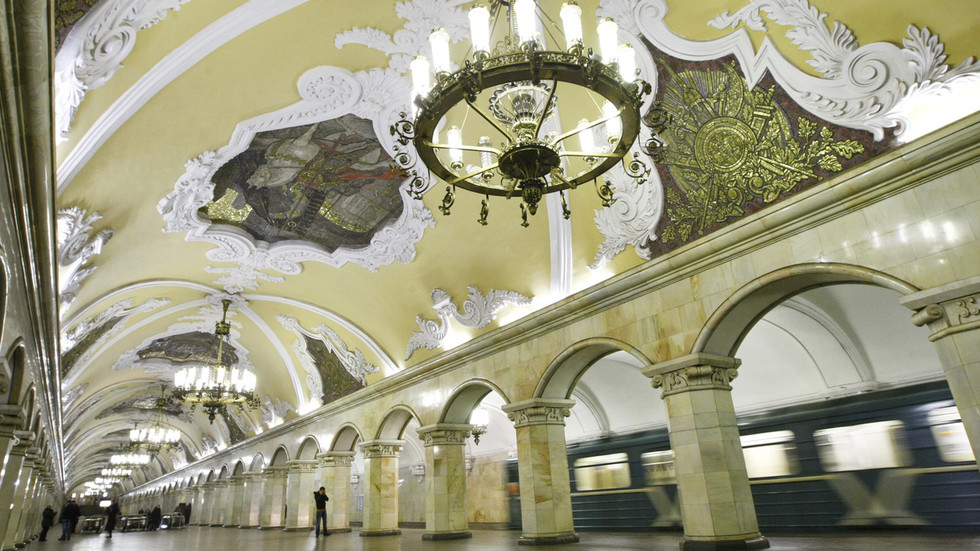
Russia & China to launch joint venture for constructing metros worldwide www.rt.com
Russian engineering company Mosinzhproekt and the China Railway Construction Corporation (CRCC) plan to set up a joint venture for the construction of subways around the world, said Moscow Deputy Mayor Marat Khusnullin.
He said that several agreements have already been sealed with Chinese partners, particularly on the implementation of a joint project on transfer hubs and the exchange of information technology.
“We have gained expertise and potentially after 2021–2022, when the main number of metros are completed, we can start building in other countries too,” Khusnullin said, adding that a preliminary agreement with the Chinese side has already been signed.
Since August 2017, CRCC has been building a 4.6km section and three stations on the Large Circle Line in Moscow, which will be completed by the end of 2020. In February, CRCC won another metro construction contract and is expected to start tunneling next month.
The Chinese firm may also invest around $1 billion in the construction of the first stage of Russia’s administrative and business center, Kommunarka.
The Moscow metro is one of the busiest in the world and is famous for its efficiency and elegance. It features some of the most beautiful stations, many of which are decorated with frescoes, marble columns and ornate chandeliers. It is one of the cleanest metros, with more than nine million passengers every day.
Opened in 1935 with 13 stations, it was the first underground railway system in the Soviet Union. As of 2019, the Moscow Metro, excluding the Moscow Central Circle and Moscow Monorail, has 232 stations (263 with Moscow Central Circle) and its route length is 397.3km (246.9 miles), making it the fifth longest in the world. The system is mostly underground, with the deepest section at a depth of 84 meters (276ft), one of the world’s deepest.
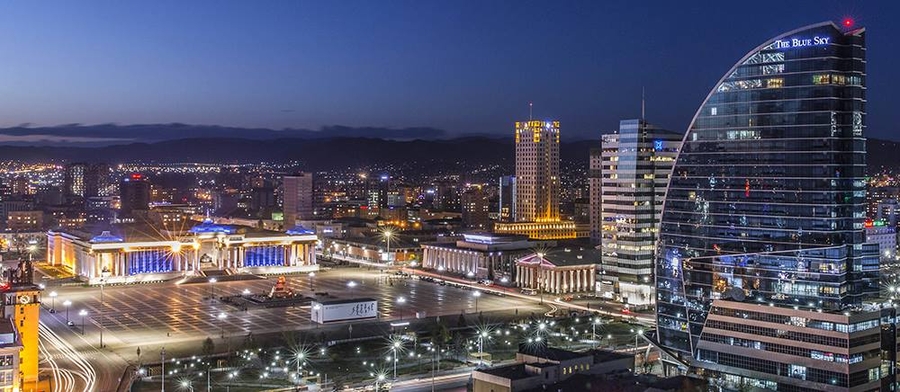
Ulaanbaatar improves its position in most polluted cities ranking www.akipress.com
Ulaanbaatar was moved from the top 10 most polluted cities in the world from the fall of 2019.
The Mongolian capital has been one of the most polluted cities for a long time. The situation has changed.
According to Greenpeace and AirVisual, 22 out of 30 most pollutted cities in the world are located in India. The first positions in the ranking belong to Gurgaon, India, which is home to 900,000 people followed by Lahore (Pakistan), Dhaka (Bangladesh), Djakarta (Indonesia), Mumbai (India), Ho Chi Minh (Vietnam) and Tehran (Iran).
The Mongolian capital is placed among the cities of Osaka (Japan) and Vancouver (Canada) gaining the 64th place on air quality.
The World Health Organization says that 7 million people die prematurely every year due to polluted air in the world, and the World Bank estimates that the global economy is losing 225 billion dollars due to labor shortages.

Population of Mongolia to reach 4 million by 2030 www.montsame.mn
Ulaanbaatar /MONTSAME/. Today, November 13, the Cabinet meeting heard a presentation by Minister of Labor and Social Protection S.Chinzorig on state policy for labor and social protection industry for 2020-2024 and projection of investment and development.
The revised population projection of Mongolia indicated that the population is expected to increase to four million by 2030 and to five million by 2045. Notwithstanding the stable population growth, the number of older population will outgrow and the share of older population in the total population becomes 12.9 percent in 2030 and 16.3 percent in 2045, increasing twofold than today. In this regard, it is deemed necessary to take tangible actions promoting population growth, youth development and social protection.
As reflected in the projection, provision of social services to become more effective focusing on target group, pensions allotted from the social insurance to be raised annually to keep up with inflation rate and differences of pension benefits to be eliminated, followed by introduction of multi-layer pension system. In addition, youth employment to be supported through reduction of unemployment and poverty and implementation of policy to prepare on-demand workforce. Wages to be increased to satisfy for real living wage and lower income groups to be decreased by raising the minimum wage.
Other measures include establishing regional nursing homes for seniors and rehabilitation center for abused children, training center for specialized education organizations,service center for senior citizens in Ulaanbaatar city, foster home for children with special needs, research hospital for occupational diseases, children camp and child protective service center.
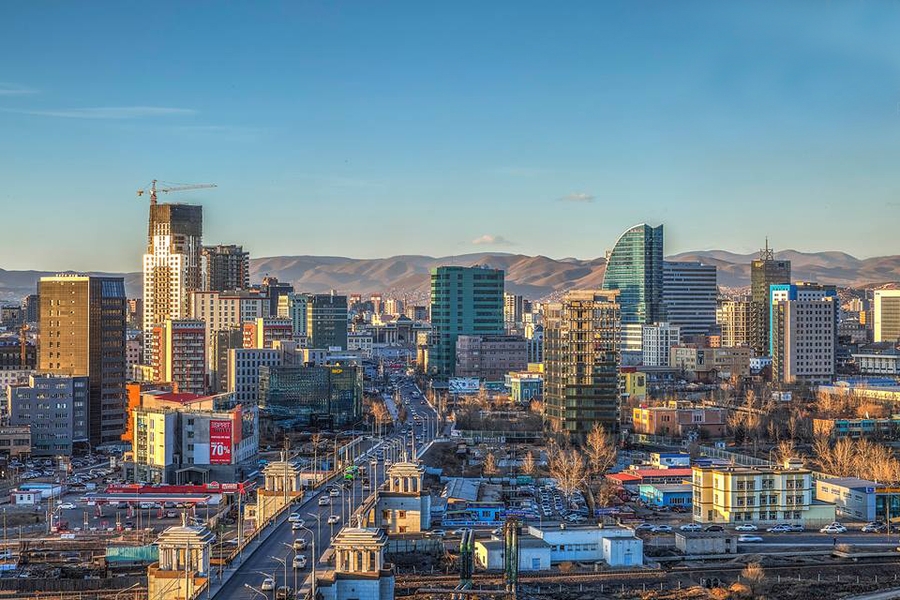
Considering exporting to Mongolia? Read our new doing business guide www.export.org.uk
With a growing population of 3.2 million people, Citigroup analysts determined Mongolia to be one of the ‘Global Growth Generating’ countries, which are countries with the most promising growth prospects for 2010–2050.
Exportation relationships are mainly with China, receiving 90% of Mongolia's exports by value and accounting for 60% of its foreign trade, while Russia is responsible for supplying 90% of Mongolia's energy requirements. Mongolia has begun seeking positive relations with a wider range of other nations especially in cultural and economic matters, focusing on encouraging foreign investments and trade.
The country's proficiency in math is another plus. This year, Mongolia ranked 26th in the International Mathematical Olympiad, just behind France and Canada, and up from 50th place in 2010. This should lead to a positive encouragement in white-collar industries, in a country mainly known for its agricultural activities.
The government is fully behind the blossoming IT industry. In 2018, it launched the Hub Innovation Centre, the nation's first facility that directly supports start-up businesses. It is also not hindering the industry with undue regulation, which essentially allows companies to use the country as a test bed before expanding overseas.
Please download our ‘Doing Business in Mongolia’ guide below for more information, and we hope you find it helpful. If you have any questions, please feel free to contact us on info@ima.uk.com
https://www.export.org.uk/…/Considering-exporting-to-Mongol…
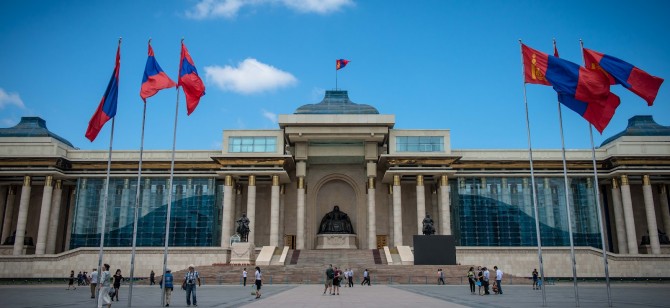
Proposed Legislation To Restrict Civil Society In Mongolia www.theowp.org
In a move that mimics recent acts by Russia, Poland and Hungary, the Mongolian government is preparing to debate proposed legislation that will allow government oversight of non-government organisations (NGOs). As reported by The Washington Post’s Aubrey Menarndt, the legislation requires the creation of a Civil Society Development Council, which will grant the government extensive powers over NGO operation. The Council will also require NGOs to submit annual reports that detail their funding, in an effort to reduce ‘money-laundering’ and ‘terrorist financing’. The proposed legislation prohibits NGO activities that go against ‘public unity’, and grants the government greater control over NGO funding.
While there is a general acknowledgement amongst the NGO community that Mongolia’s civil society must be streamlined, the proposed legislation has caused serious concerns. Craig Castagna, the resident program director for the International Republican Institute, told The Washington Post: “There is widespread agreement amongst stakeholders that Mongolia’s laws and regulations concerning NGOs need to be updated and streamlined, but not at the expense of restricting fundamental freedoms of assembly, association and expression.”
Such concerns are fueled by the use of similar legislation in Russia, known as the foreign agent’s law, to weaken civil society and increase government control. In a speech to the Organization of Security and Cooperation in Europe’s Permanent Council, Vienna, Ambassador Daniel B. Baer stated that, “Russia’s so-called ‘foreign agents’ law raises serious concerns about Russia’s respect for its OSCE commitments and its obligation to respect the right to freedom of association.” The Ambassador paid particular attention to the use of this law in targeting NGOs that are perceived as ‘foreign agents’, such as those that promote gender and queer equality.
The proposed legislation has the critical aim of improving Mongolia’s NGO system, but it will also grant the government effective control over NGO funding and approval. This is particularly problematic as it creates a distinct opportunity for the misuse of power, which in turn can fuel corruption. For instance, the government could force the closure of NGOs that act against the government’s interests. This essentially inhibits the ability of NGOs to hold the government to account, while simultaneously granting government control over what and whom NGOs can and cannot advocate for.
In recent years, there have been growing concerns about the threat such legislation, and the control it entails, will have on civil society. In 2012, Russia enacted the foreign agent’s law, which severely restricted the freedoms of NGOs. The legislation mandates that NGOs must register with the relevant department, and provide financial statements that detail where their funding comes from. In the following years, Poland and Hungary enacted laws that all share similar provisions to the foreign agent’s law (namely restricted access to funding for NGOs that are perceived to be a threat to social unity). Bureaucratic tools are used to weaken NGO autonomy, while a related effort is used to endorse apolitical and pro-government organisations. According to Aubrey Menarndt, Mongolia’s proposed legislation shares similar provisions, which is a cause for concern. Coupled with recent moves by the Mongolian government to limit judicial powers, the legislation could greatly impact Mongolia’s democracy.
The proposed legislation could severely restrict freedom of association in Mongolia. Such freedoms are essential to any democracy, and could indicate that Mongolia is on the precipice of further ‘democratic backsliding’. Not only does this impact NGOs, but also those for whom the NGOs advocate. In many instances, NGOs (and particularly international NGOs), are the only organisations that speak for and support disadvantaged minorities. If this is to change in Mongolia, minorities may become further disadvantaged, and potentially, persecuted.
...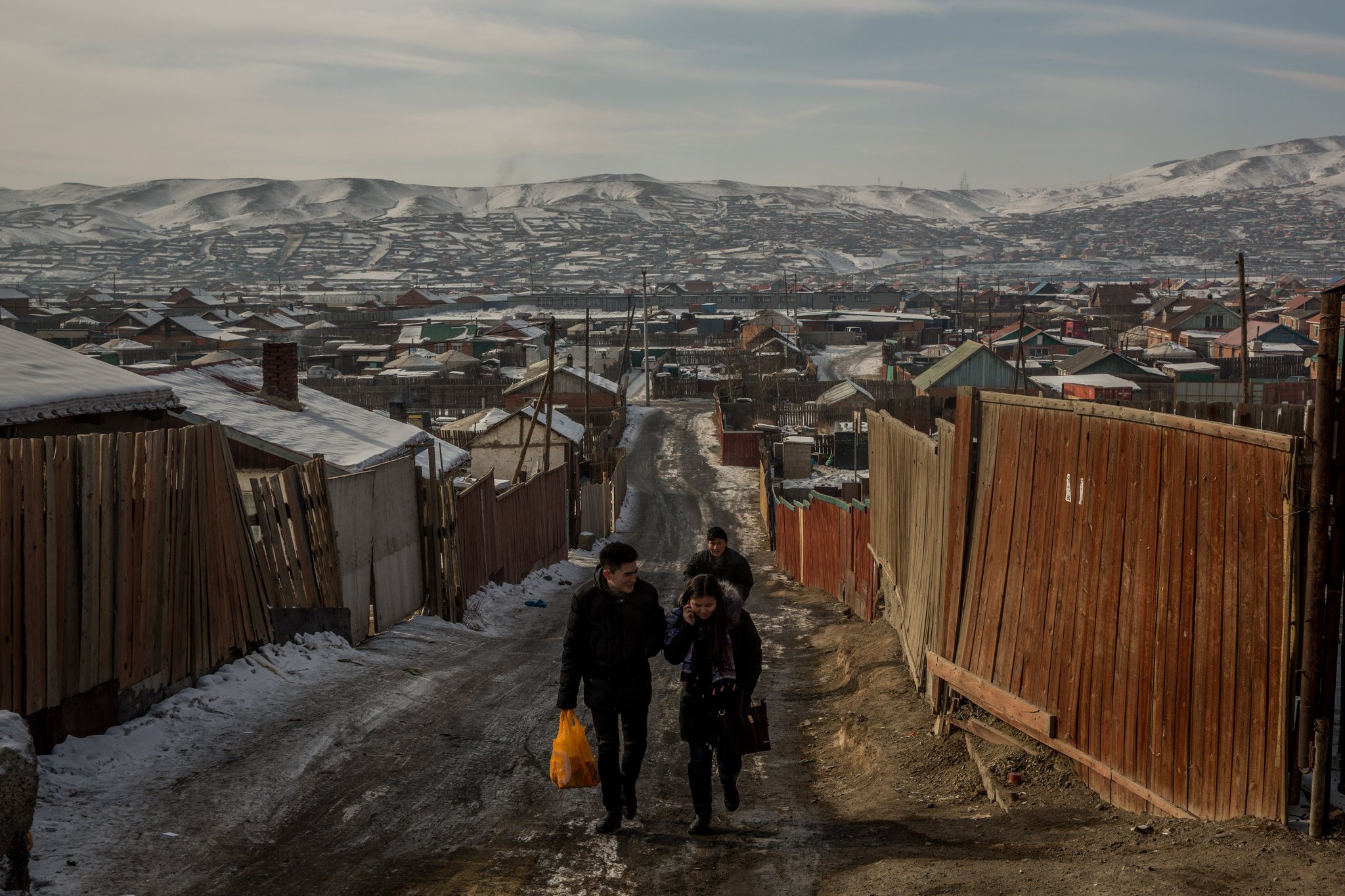
Ger area turning into smoke-free housing area www.montsame.mn
Ulaanbaatar/MONTSAME/. ‘Infrastructure center’, also known as service center, opened on November 12, in the ger area of 7th khoroo of Chingeltei district, Ulaanbaatar city. Specifically, over 200 households of the 7th khoroo have been connected to the main trunk infrastructure within the ‘Infrastructure center’ project.
Present at the opening were Parliament Speaker G.Zandanshatar, MP M.Oyunchimeg, Governor of the Capital City and Mayor of Ulaanbaatar S.Amarsaikhan and representatives of Citizens’ Representative Meeting of the assigned territory.
Speaker G.Zandanshatar emphasized, “I am happy to note about a great advancement of the capital – a commencement of the great construction that makes ger area living environment identical to apartment residential complex. Over 200 households will no longer use stove and chimney pipes. We see that as a result of intensive actions to reduce smog such as refined coal and construction of service center, we are able to spend this winter with less smog.”
MP M.Oyunchimeg said, “This project is the most optimal solution to turn ger area into a housing area in the future and create safe, healthy and ecological environment. This work has been funded with MNT5 billion from Ulaanbaatar municipality and MNT5 billion from China, to construct the infrastructure on 14-hectare area, which has been connected to the ‘Infrastructure center’. In addition, 1.5km roads were paved in four areas alongside the establishment of a wastewater treatment plant. We will work to implement this project in other khoroos.”
Within the project, 285 households of three streets of the khoroo have been connected to electricity, heating and sewerage lines, alongside the establishment of a wastewater treatment plant. Established with German technology, the plant is capable of purifying 530 cubic meter water per day with 99.9 percent purity and to be expanded further.
During the event, Governor S.Amarsaikhan said that the required financing has been reflected in the municipal budget 2020 to implement the project in other khoroos and districts in the coming years. He also informed that Ulaanbaatar Green Affordable Housing and Resilient Urban Renewal Projects is going to be implemented from next spring.
Following the opening ceremony, they got familiarized with operations of ‘Infrastructure center’ and wastewater treatment plant and visited a home of N.Otgon, beneficiary of the project. She said, “We have bought radiator, WC pan and sink, but all of other expenses have been funded with the state budget. It is so nice to live in such a comfortable environment connected to fundamental infrastructure in our own fence.”
Establishment of the infrastructure center contributes to reduce the number of chimneys and air and soil pollution, increase land value and creates favorable condition for households to live on their owned land.
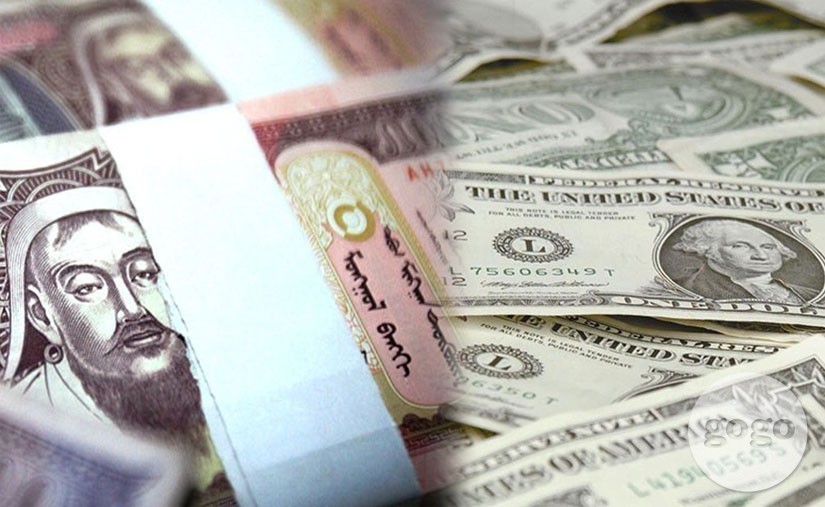
National ₮ card renewed with EMV chip technology www.montsame.mn
Ulaanbaatar/MONTSAME/. Within its goal to develop the payment system, the Bank of Mongolia made its first step of bringing Mongolia’s national payment ₮ card into a new level or renewing it with EMV chip technology, in collaboration with the Asian Development Bank through the ‘Payment System Modernization Project’.
Upgrading national brand ₮ card into EMV/NFC technology will greatly improve safety and security and be important step to introduce advanced solution of mobile payment in the future.
Within this framework, the BoM signed a cooperation agreement with Mastercard, leading global payments and solutions company, on November 12. Deputy Governor of BoM Mr. Lkhagvasuren Byadran and Co-President for Asia Pacific at Mastercard Mr. Ling Hai signed the agreement, with presence of authorities of the BoM, Financial Regulatory Committee, Communications Regulatory Commission of Mongolia, Mongolian Bankers Association banks and fintech companies.
In cooperation with commercial banks of the country, the Bank of Mongolia successfully introduced national ₮ card, symbolically named as national currency ‘Tugrug’, in 2012. As of the second quarter of 2019, the national ₮ card makes up 74.9 percent of the market, with the use of 2.7 million pieces in total.
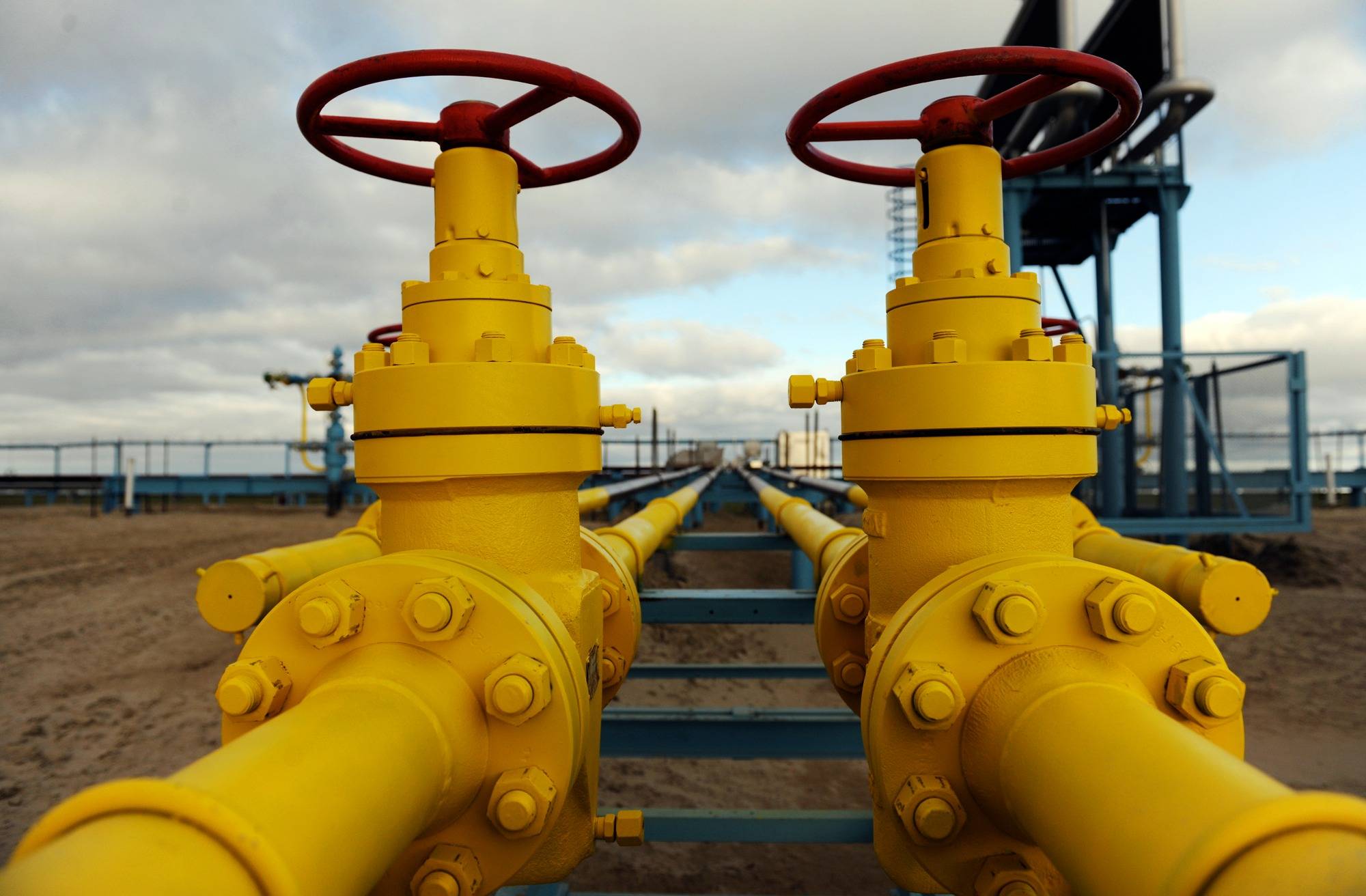
Natural gas supply set to satisfy needs in key season www.chinadaily.com.cn
A natural gas supply crunch is unlikely to happen nationwide in the 2019-20 heating season, due to a slower increase in natural gas consumption, and strengthened supply capabilities arising from continuous domestic production growth, increased imports, and improved gas infrastructure, industry insiders said.
The country's annual natural gas output is expected to reach more than 170 billion cubic meters this year, increasing by more than 11 billion cubic meters, while it is putting more overseas natural gas in pipelines, Xinhua News Agency reported on Tuesday, citing an unidentified official of the National Development and Reform Commission.
The China-Russia east-route natural gas pipeline project is expected to start operation in early December, and imports of overseas liquefied natural gas have seen rapid growth.
The official also emphasized the availability of cross-regional energy connectivity infrastructure such as the south-to-north natural gas transmission project and one that boosts supply for the Beijing-Tianjin-Hebei region from northeastern China.
China is expected to build a gas storage capacity of about 20 billion cubic meters this year, and at present, the gas storage facilities of the top three oil and gas companies have completed gas injection as planned, to ensure gas supplies during the heating season, the official said.
Zhao Xu, an oil and gas expert with the School of Economics and Management at China University of Petroleum (Beijing), said the total gas supply from domestic output and overseas imports will be around 320 billion cubic meters in the year, slightly surpassing the estimated yearly demand of 311 billion cubic meters, if estimated on the basis of the supply and demand growth curves from January to August.
"It is highly possible that this winter will be relatively warm due to the El Nino phenomenon, and the switch from coal to gas for heating in northern China has been carried out smoothly without haste, which all help ensure the balance between gas supply and demand," she said, adding that the gas crunch in 2017 was largely worsened by an unexpected sharp decrease in overseas supplies.
Xiong Wei, assistant director of the pipeline gas trading department at Shanghai Petroleum and Natural Gas Exchange, emphasized that the ongoing decrease in China's gas consumption growth rate is likely to continue during the winter season, largely due to the slowed increase in industrial use.
From January to September, China consumed 216.6 billion cubic meters of gas, with a year-on-year growth of 10.1 percent, which was 7.4 percentage points less compared to last year.
On the contrary, China produced 126.3 billion cubic meters of gas in the first three quarters, increasing 10.9 percent year-on-year, which marked a milestone in that domestic gas output growth outstripped domestic gas consumption growth for the first time.
"Year-on-year as consumption growth rate this winter will be no more than 10 percent, and considering PetroChina's natural gas output this winter is likely to outpace that of last year, while gas supplies to northern regions from Sinopec and CNOOC for the heating season are expected to grow respectively by 1.18 billion and 1.5 billion cubic meters, the gas demand and supply is supposed to be balanced generally," he said, adding that the currently much lower imported LNG prices also contribute to increased supplies.
However, he warned that despite the highly likely supply and demand balance on a national level, regional restraints cannot be totally ruled out, especially if unexpected extreme cold weather occurs.
Both Xiong and Zhao said an imbalance in China's gas supply and demand is a long-term concern, as China lacks conventional natural gas resources.
They suggested more government incentives and financial support to be provided to develop unconventional natural gas resources.
...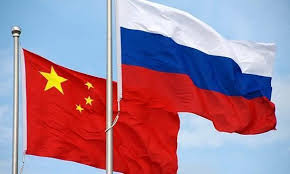
Putin & Xi to launch strategic natural gas pipeline from Russia to China in December www.rt.com
Russian President Vladimir Putin and his Chinese counterpart Xi Jinping will take part in the launching ceremony of the Power of Siberia gas pipeline, set to be held next month.
While the leaders will not be physically present at the event, they will join via a teleconference, Russian presidential aide Yury Ushakov told media on Monday. The Chinese Foreign Ministry confirmed the official ceremony will happen when the pipeline becomes operational in December.
“The Sino-Russian eastern route was agreed by the leaders of the two states. This is an important strategic project in the field of energy cooperation, and it is very important for both countries,” Foreign Ministry spokesman Geng Shuang said at the daily news conference.
Russia and its biggest trade partner, China, agreed on the gas supplies via the Power of Siberia pipeline in 2014, when Gazprom and the China National Petroleum Corporation (CNPC) signed a 30-year contract. The project will deliver natural gas from the Russian regions of Yakutia and Irkutsk to domestic consumers in the Far East and then to China, a new foreign market for Gazprom. The 3,000-kilometer (1,864 miles) pipeline is set to bring 38 billion cubic meters of the blue fuel to China by 2025.
At the end of October, Gazprom finished filling gas into the Power of Siberia pipeline, making the linear part of the project fully ready to start exports to China.

South Korean river turns red after being polluted with pigs' blood www.bbc.com
A river near the inter-Korean border has turned red after being polluted with blood from pig carcasses.
South Korean authorities had culled 47,000 pigs in an attempt to halt the spread of African swine fever (ASF).
Heavy rains caused blood to flow from a border burial site into a tributary of the Imjin River.
African swine fever is highly contagious and incurable, with a near zero survival rate for infected pigs, but it is not dangerous to humans.
Local authorities dismissed concerns that the blood could cause the spread of African swine fever to other at-risk animals, saying the pigs had already been disinfected before being slaughtered.
Boar with swine fever found in Korea border zone
Why millions of pigs are being culled in Asia
Is China losing the battle against an incurable pig virus?
It also said emergency steps had been taken to prevent further pollution.
An outbreak across Asia
The pig-culling operation was carried out over the weekend. The carcasses were said to have been left inside multiple trucks at a burial side near the inter-Korean border.
A delay in the production of plastic containers used for burial disposal meant that burials could not be carried out immediately.
ASF was only discovered in South Korea recently, and there was speculation it arrived via pigs crossing the heavily guarded demilitarised zone (DMZ) that separates the North and South.
The first case of ASF was recoded in North Korea in May, and the South made great efforts to keep it out, including border fences.
The South Korean military was authorised to kill any wild boars seen crossing the DMZ.
Despite the precautions, South Korea reported its first case on 17 September - with the total now at 13. There are around 6,700 pig farms in South Korea.
Much of Asia has been affected by the outbreak, including China, Vietnam and the Philippines. Some 1.2 million pigs have been culled in China alone.
- «
- 1
- 2
- 3
- 4
- 5
- 6
- 7
- 8
- 9
- 10
- 11
- 12
- 13
- 14
- 15
- 16
- 17
- 18
- 19
- 20
- 21
- 22
- 23
- 24
- 25
- 26
- 27
- 28
- 29
- 30
- 31
- 32
- 33
- 34
- 35
- 36
- 37
- 38
- 39
- 40
- 41
- 42
- 43
- 44
- 45
- 46
- 47
- 48
- 49
- 50
- 51
- 52
- 53
- 54
- 55
- 56
- 57
- 58
- 59
- 60
- 61
- 62
- 63
- 64
- 65
- 66
- 67
- 68
- 69
- 70
- 71
- 72
- 73
- 74
- 75
- 76
- 77
- 78
- 79
- 80
- 81
- 82
- 83
- 84
- 85
- 86
- 87
- 88
- 89
- 90
- 91
- 92
- 93
- 94
- 95
- 96
- 97
- 98
- 99
- 100
- 101
- 102
- 103
- 104
- 105
- 106
- 107
- 108
- 109
- 110
- 111
- 112
- 113
- 114
- 115
- 116
- 117
- 118
- 119
- 120
- 121
- 122
- 123
- 124
- 125
- 126
- 127
- 128
- 129
- 130
- 131
- 132
- 133
- 134
- 135
- 136
- 137
- 138
- 139
- 140
- 141
- 142
- 143
- 144
- 145
- 146
- 147
- 148
- 149
- 150
- 151
- 152
- 153
- 154
- 155
- 156
- 157
- 158
- 159
- 160
- 161
- 162
- 163
- 164
- 165
- 166
- 167
- 168
- 169
- 170
- 171
- 172
- 173
- 174
- 175
- 176
- 177
- 178
- 179
- 180
- 181
- 182
- 183
- 184
- 185
- 186
- 187
- 188
- 189
- 190
- 191
- 192
- 193
- 194
- 195
- 196
- 197
- 198
- 199
- 200
- 201
- 202
- 203
- 204
- 205
- 206
- 207
- 208
- 209
- 210
- 211
- 212
- 213
- 214
- 215
- 216
- 217
- 218
- 219
- 220
- 221
- 222
- 223
- 224
- 225
- 226
- 227
- 228
- 229
- 230
- 231
- 232
- 233
- 234
- 235
- 236
- 237
- 238
- 239
- 240
- 241
- 242
- 243
- 244
- 245
- 246
- 247
- 248
- 249
- 250
- 251
- 252
- 253
- 254
- 255
- 256
- 257
- 258
- 259
- 260
- 261
- 262
- 263
- 264
- 265
- 266
- 267
- 268
- 269
- 270
- 271
- 272
- 273
- 274
- 275
- 276
- 277
- 278
- 279
- 280
- 281
- 282
- 283
- 284
- 285
- 286
- 287
- 288
- 289
- 290
- 291
- 292
- 293
- 294
- 295
- 296
- 297
- 298
- 299
- 300
- 301
- 302
- 303
- 304
- 305
- 306
- 307
- 308
- 309
- 310
- 311
- 312
- 313
- 314
- 315
- 316
- 317
- 318
- 319
- 320
- 321
- 322
- 323
- 324
- 325
- 326
- 327
- 328
- 329
- 330
- 331
- 332
- 333
- 334
- 335
- 336
- 337
- 338
- 339
- 340
- 341
- 342
- 343
- 344
- 345
- 346
- 347
- 348
- 349
- 350
- 351
- 352
- 353
- 354
- 355
- 356
- 357
- 358
- 359
- 360
- 361
- 362
- 363
- 364
- 365
- 366
- 367
- 368
- 369
- 370
- 371
- 372
- 373
- 374
- 375
- 376
- 377
- 378
- 379
- 380
- 381
- 382
- 383
- 384
- 385
- 386
- 387
- 388
- 389
- 390
- 391
- 392
- 393
- 394
- 395
- 396
- 397
- 398
- 399
- 400
- 401
- 402
- 403
- 404
- 405
- 406
- 407
- 408
- 409
- 410
- 411
- 412
- 413
- 414
- 415
- 416
- 417
- 418
- 419
- 420
- 421
- 422
- 423
- 424
- 425
- 426
- 427
- 428
- 429
- 430
- 431
- 432
- 433
- 434
- 435
- 436
- 437
- 438
- 439
- 440
- 441
- 442
- 443
- 444
- 445
- 446
- 447
- 448
- 449
- 450
- 451
- 452
- 453
- 454
- 455
- 456
- 457
- 458
- 459
- 460
- 461
- 462
- 463
- 464
- 465
- 466
- 467
- 468
- 469
- 470
- 471
- 472
- 473
- 474
- 475
- 476
- 477
- 478
- 479
- 480
- 481
- 482
- 483
- 484
- 485
- 486
- 487
- 488
- 489
- 490
- 491
- 492
- 493
- 494
- 495
- 496
- 497
- 498
- 499
- 500
- 501
- 502
- 503
- 504
- 505
- 506
- 507
- 508
- 509
- 510
- 511
- 512
- 513
- 514
- 515
- 516
- 517
- 518
- 519
- 520
- 521
- 522
- 523
- 524
- 525
- 526
- 527
- 528
- 529
- 530
- 531
- 532
- 533
- 534
- 535
- 536
- 537
- 538
- 539
- 540
- 541
- 542
- 543
- 544
- 545
- 546
- 547
- 548
- 549
- 550
- 551
- 552
- 553
- 554
- 555
- 556
- 557
- 558
- 559
- 560
- 561
- 562
- 563
- 564
- 565
- 566
- 567
- 568
- 569
- 570
- 571
- 572
- 573
- 574
- 575
- 576
- 577
- 578
- 579
- 580
- 581
- 582
- 583
- 584
- 585
- 586
- 587
- 588
- 589
- 590
- 591
- 592
- 593
- 594
- 595
- 596
- 597
- 598
- 599
- 600
- 601
- 602
- 603
- 604
- 605
- 606
- 607
- 608
- 609
- 610
- 611
- 612
- 613
- 614
- 615
- 616
- 617
- 618
- 619
- 620
- 621
- 622
- 623
- 624
- 625
- 626
- 627
- 628
- 629
- 630
- 631
- 632
- 633
- 634
- 635
- 636
- 637
- 638
- 639
- 640
- 641
- 642
- 643
- 644
- 645
- 646
- 647
- 648
- 649
- 650
- 651
- 652
- 653
- 654
- 655
- 656
- 657
- 658
- 659
- 660
- 661
- 662
- 663
- 664
- 665
- 666
- 667
- 668
- 669
- 670
- 671
- 672
- 673
- 674
- 675
- 676
- 677
- 678
- 679
- 680
- 681
- 682
- 683
- 684
- 685
- 686
- 687
- 688
- 689
- 690
- 691
- 692
- 693
- 694
- 695
- 696
- 697
- 698
- 699
- 700
- 701
- 702
- 703
- 704
- 705
- 706
- 707
- 708
- 709
- 710
- 711
- 712
- 713
- 714
- 715
- 716
- 717
- 718
- 719
- 720
- 721
- 722
- 723
- 724
- 725
- 726
- 727
- 728
- 729
- 730
- 731
- 732
- 733
- 734
- 735
- 736
- 737
- 738
- 739
- 740
- 741
- 742
- 743
- 744
- 745
- 746
- 747
- 748
- 749
- 750
- 751
- 752
- 753
- 754
- 755
- 756
- 757
- 758
- 759
- 760
- 761
- 762
- 763
- 764
- 765
- 766
- 767
- 768
- 769
- 770
- 771
- 772
- 773
- 774
- 775
- 776
- 777
- 778
- 779
- 780
- 781
- 782
- 783
- 784
- 785
- 786
- 787
- 788
- 789
- 790
- 791
- 792
- 793
- 794
- 795
- 796
- 797
- 798
- 799
- 800
- 801
- 802
- 803
- 804
- 805
- 806
- 807
- 808
- 809
- 810
- 811
- 812
- 813
- 814
- 815
- 816
- 817
- 818
- 819
- 820
- 821
- 822
- 823
- 824
- 825
- 826
- 827
- 828
- 829
- 830
- 831
- 832
- 833
- 834
- 835
- 836
- 837
- 838
- 839
- 840
- 841
- 842
- 843
- 844
- 845
- 846
- 847
- 848
- 849
- 850
- 851
- 852
- 853
- 854
- 855
- 856
- 857
- 858
- 859
- 860
- 861
- 862
- 863
- 864
- 865
- 866
- 867
- 868
- 869
- 870
- 871
- 872
- 873
- 874
- 875
- 876
- 877
- 878
- 879
- 880
- 881
- 882
- 883
- 884
- 885
- 886
- 887
- 888
- 889
- 890
- 891
- 892
- 893
- 894
- 895
- 896
- 897
- 898
- 899
- 900
- 901
- 902
- 903
- 904
- 905
- 906
- 907
- 908
- 909
- 910
- 911
- 912
- 913
- 914
- 915
- 916
- 917
- 918
- 919
- 920
- 921
- 922
- 923
- 924
- 925
- 926
- 927
- 928
- 929
- 930
- 931
- 932
- 933
- 934
- 935
- 936
- 937
- 938
- 939
- 940
- 941
- 942
- 943
- 944
- 945
- 946
- 947
- 948
- 949
- 950
- 951
- 952
- 953
- 954
- 955
- 956
- 957
- 958
- 959
- 960
- 961
- 962
- 963
- 964
- 965
- 966
- 967
- 968
- 969
- 970
- 971
- 972
- 973
- 974
- 975
- 976
- 977
- 978
- 979
- 980
- 981
- 982
- 983
- 984
- 985
- 986
- 987
- 988
- 989
- 990
- 991
- 992
- 993
- 994
- 995
- 996
- 997
- 998
- 999
- 1000
- 1001
- 1002
- 1003
- 1004
- 1005
- 1006
- 1007
- 1008
- 1009
- 1010
- 1011
- 1012
- 1013
- 1014
- 1015
- 1016
- 1017
- 1018
- 1019
- 1020
- 1021
- 1022
- 1023
- 1024
- 1025
- 1026
- 1027
- 1028
- 1029
- 1030
- 1031
- 1032
- 1033
- 1034
- 1035
- 1036
- 1037
- 1038
- 1039
- 1040
- 1041
- 1042
- 1043
- 1044
- 1045
- 1046
- 1047
- 1048
- 1049
- 1050
- 1051
- 1052
- 1053
- 1054
- 1055
- 1056
- 1057
- 1058
- 1059
- 1060
- 1061
- 1062
- 1063
- 1064
- 1065
- 1066
- 1067
- 1068
- 1069
- 1070
- 1071
- 1072
- 1073
- 1074
- 1075
- 1076
- 1077
- 1078
- 1079
- 1080
- 1081
- 1082
- 1083
- 1084
- 1085
- 1086
- 1087
- 1088
- 1089
- 1090
- 1091
- 1092
- 1093
- 1094
- 1095
- 1096
- 1097
- 1098
- 1099
- 1100
- 1101
- 1102
- 1103
- 1104
- 1105
- 1106
- 1107
- 1108
- 1109
- 1110
- 1111
- 1112
- 1113
- 1114
- 1115
- 1116
- 1117
- 1118
- 1119
- 1120
- 1121
- 1122
- 1123
- 1124
- 1125
- 1126
- 1127
- 1128
- 1129
- 1130
- 1131
- 1132
- 1133
- 1134
- 1135
- 1136
- 1137
- 1138
- 1139
- 1140
- 1141
- 1142
- 1143
- 1144
- 1145
- 1146
- 1147
- 1148
- 1149
- 1150
- 1151
- 1152
- 1153
- 1154
- 1155
- 1156
- 1157
- 1158
- 1159
- 1160
- 1161
- 1162
- 1163
- 1164
- 1165
- 1166
- 1167
- 1168
- 1169
- 1170
- 1171
- 1172
- 1173
- 1174
- 1175
- 1176
- 1177
- 1178
- 1179
- 1180
- 1181
- 1182
- 1183
- 1184
- 1185
- 1186
- 1187
- 1188
- 1189
- 1190
- 1191
- 1192
- 1193
- 1194
- 1195
- 1196
- 1197
- 1198
- 1199
- 1200
- 1201
- 1202
- 1203
- 1204
- 1205
- 1206
- 1207
- 1208
- 1209
- 1210
- 1211
- 1212
- 1213
- 1214
- 1215
- 1216
- 1217
- 1218
- 1219
- 1220
- 1221
- 1222
- 1223
- 1224
- 1225
- 1226
- 1227
- 1228
- 1229
- 1230
- 1231
- 1232
- 1233
- 1234
- 1235
- 1236
- 1237
- 1238
- 1239
- 1240
- 1241
- 1242
- 1243
- 1244
- 1245
- 1246
- 1247
- 1248
- 1249
- 1250
- 1251
- 1252
- 1253
- 1254
- 1255
- 1256
- 1257
- 1258
- 1259
- 1260
- 1261
- 1262
- 1263
- 1264
- 1265
- 1266
- 1267
- 1268
- 1269
- 1270
- 1271
- 1272
- 1273
- 1274
- 1275
- 1276
- 1277
- 1278
- 1279
- 1280
- 1281
- 1282
- 1283
- 1284
- 1285
- 1286
- 1287
- 1288
- 1289
- 1290
- 1291
- 1292
- 1293
- 1294
- 1295
- 1296
- 1297
- 1298
- 1299
- 1300
- 1301
- 1302
- 1303
- 1304
- 1305
- 1306
- 1307
- 1308
- 1309
- 1310
- 1311
- 1312
- 1313
- 1314
- 1315
- 1316
- 1317
- 1318
- 1319
- 1320
- 1321
- 1322
- 1323
- 1324
- 1325
- 1326
- 1327
- 1328
- 1329
- 1330
- 1331
- 1332
- 1333
- 1334
- 1335
- 1336
- 1337
- 1338
- 1339
- 1340
- 1341
- 1342
- 1343
- 1344
- 1345
- 1346
- 1347
- 1348
- 1349
- 1350
- 1351
- 1352
- 1353
- 1354
- 1355
- 1356
- 1357
- 1358
- 1359
- 1360
- 1361
- 1362
- 1363
- 1364
- 1365
- 1366
- 1367
- 1368
- 1369
- 1370
- 1371
- 1372
- 1373
- 1374
- 1375
- 1376
- 1377
- 1378
- 1379
- 1380
- 1381
- 1382
- 1383
- 1384
- 1385
- 1386
- 1387
- 1388
- 1389
- 1390
- 1391
- 1392
- 1393
- 1394
- 1395
- 1396
- 1397
- 1398
- 1399
- 1400
- 1401
- 1402
- 1403
- 1404
- 1405
- 1406
- 1407
- 1408
- 1409
- 1410
- 1411
- 1412
- 1413
- 1414
- 1415
- 1416
- 1417
- 1418
- 1419
- 1420
- 1421
- 1422
- 1423
- 1424
- 1425
- 1426
- 1427
- 1428
- 1429
- 1430
- 1431
- 1432
- 1433
- 1434
- 1435
- 1436
- 1437
- 1438
- 1439
- 1440
- 1441
- 1442
- 1443
- 1444
- 1445
- 1446
- 1447
- 1448
- 1449
- 1450
- 1451
- 1452
- 1453
- 1454
- 1455
- 1456
- 1457
- 1458
- 1459
- 1460
- 1461
- 1462
- 1463
- 1464
- 1465
- 1466
- 1467
- 1468
- 1469
- 1470
- 1471
- 1472
- 1473
- 1474
- 1475
- 1476
- 1477
- 1478
- 1479
- 1480
- 1481
- 1482
- 1483
- 1484
- 1485
- 1486
- 1487
- 1488
- 1489
- 1490
- 1491
- 1492
- 1493
- 1494
- 1495
- 1496
- 1497
- 1498
- 1499
- 1500
- 1501
- 1502
- 1503
- 1504
- 1505
- 1506
- 1507
- 1508
- 1509
- 1510
- 1511
- 1512
- 1513
- 1514
- 1515
- 1516
- 1517
- 1518
- 1519
- 1520
- 1521
- 1522
- 1523
- 1524
- 1525
- 1526
- 1527
- 1528
- 1529
- 1530
- 1531
- 1532
- 1533
- 1534
- 1535
- 1536
- 1537
- 1538
- 1539
- 1540
- 1541
- 1542
- 1543
- 1544
- 1545
- 1546
- 1547
- 1548
- 1549
- 1550
- 1551
- 1552
- 1553
- 1554
- 1555
- 1556
- 1557
- 1558
- 1559
- 1560
- 1561
- 1562
- 1563
- 1564
- 1565
- 1566
- 1567
- 1568
- 1569
- 1570
- 1571
- 1572
- 1573
- 1574
- 1575
- 1576
- 1577
- 1578
- 1579
- 1580
- 1581
- 1582
- 1583
- 1584
- 1585
- 1586
- 1587
- 1588
- 1589
- 1590
- 1591
- 1592
- 1593
- 1594
- 1595
- 1596
- 1597
- 1598
- 1599
- 1600
- 1601
- 1602
- 1603
- 1604
- 1605
- 1606
- 1607
- 1608
- 1609
- 1610
- 1611
- 1612
- 1613
- 1614
- 1615
- 1616
- 1617
- 1618
- 1619
- 1620
- 1621
- 1622
- 1623
- 1624
- 1625
- 1626
- 1627
- 1628
- 1629
- 1630
- 1631
- 1632
- 1633
- 1634
- 1635
- 1636
- 1637
- 1638
- 1639
- 1640
- 1641
- 1642
- 1643
- 1644
- 1645
- 1646
- 1647
- 1648
- 1649
- 1650
- 1651
- 1652
- 1653
- 1654
- 1655
- 1656
- 1657
- 1658
- 1659
- 1660
- 1661
- 1662
- 1663
- 1664
- 1665
- 1666
- 1667
- 1668
- 1669
- 1670
- 1671
- 1672
- 1673
- 1674
- 1675
- 1676
- 1677
- 1678
- 1679
- 1680
- 1681
- 1682
- 1683
- 1684
- 1685
- 1686
- 1687
- 1688
- 1689
- 1690
- 1691
- 1692
- 1693
- 1694
- 1695
- 1696
- 1697
- 1698
- 1699
- 1700
- 1701
- 1702
- 1703
- 1704
- 1705
- 1706
- 1707
- 1708
- 1709
- 1710
- 1711
- 1712
- 1713
- 1714
- »






